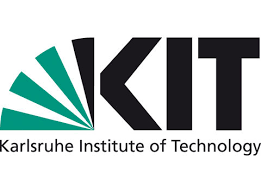Karlsruhe Institute of Technology: Zoom takes over the spin-off kites from the KIT
The US company Zoom Video Communications has acquired kites GmbH, a spin-off from the Karlsruhe Institute of Technology (KIT), which specializes in the development of real-time solutions for machine translations. Zoom announced this this afternoon (June 29th, 2021). Zoom will also invest in further research at the Karlsruhe location and is also considering setting up a research and development location in Germany.
“The importance of intelligent, high-performance information and communication technologies for our working world and our everyday lives was made clear to us, not least by the corona pandemic. The KIT researchers have been working on suitable language technologies for many years, which the kites team has successfully implemented, ”says the President of KIT, Professor Holger Hanselka. “The fact that Zoom is now acquiring this spin-off and driving the expansion of the team in Karlsruhe is a logical step that opens these promising solutions to many people. The investment in further research in Karlsruhe is a great gain for KIT, the city and the Karlsruhe region. “
“Developing applications for business and society from scientific findings is one of the core tasks of KIT. The kites GmbH succeeded in doing just that. It is a very good example of the innovation activity of our researchers, ”says Professor Thomas Hirth, Vice President for Innovation and International Affairs at KIT. “With such solutions, international understanding can be promoted, networking strengthened and borders overcome.”
The two kites partners Professor Alexander Waibel and Dr. Sebastian Stüker are working on suitable products that automatically process natural and spontaneous language using methods of artificial intelligence. They founded kites in 2015 with the aim of integrating their research results into real applications. Areas of work are automatic speech recognition, machine translation, language support, technical support for human interpreters and simultaneous language translation. The kites team consists of twelve researchers and will support the Zoom engineering team in the future. Together they want to advance machine translation and provide multilingual translation options to make meetings more productive and efficient for Zoom users.
“We founded kites with the aim of breaking down language barriers and making cross-language interactions a real part of our everyday lives. We have long valued Zoom for its ability to easily connect people all over the world, ”says Alexander Waibel, computer science professor at KIT and co-founder of kites. “We know that Zoom is the best kite partner to achieve our goals. We look forward to advancing our developments together with Zoom as the engine of innovation. “
“Our main concern is to bring our know-how into application-compatible products that automatically process natural language. Our technologies are particularly specialized in real-time applications, ”explains Sebastian Stüker, founder and managing director of kites and head of the junior research group Multilingual Speech Recognition at KIT. “They enable, for example, automatic, simultaneous language translation as software as a service or automatic subtitling of videos in many languages. This makes it ideal for the services of Zoom. “
The work of Waibel and Stüker is based, among other things, on the Lecture Translator they developed, which has been bridging language barriers for international students at KIT with simultaneous lecture translations since 2012.
Stüker and the employees of kites will remain based in Karlsruhe, where Zoom will invest in expanding the team. In addition, Zoom is considering setting up a research and development location in Germany. As a Zoom Research Fellow, Alexander Waibel will support research and development in machine translation at Zoom in an advisory capacity.
As “The Research University in the Helmholtz Association”, KIT creates and imparts knowledge for society and the environment. The aim is to make significant contributions to global challenges in the fields of energy, mobility and information. To this end, around 9,600 employees work together on a broad disciplinary basis in the natural, engineering, economic, humanities and social sciences. The KIT prepares its 23,300 students for responsible tasks in society, economy and science through a research-oriented university course. The innovation activity at KIT bridges the gap between knowledge and application for social benefit, economic prosperity and the preservation of our natural foundations of life.

